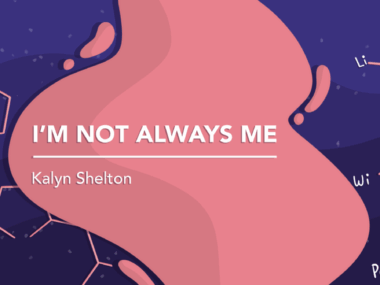What to do when your sibling also has an acute porphyria diagnosis
My brother and I may have the same condition, but we approach it differently
Written by |

My brother, Jake, has acute intermittent porphyria (AIP). But he’s in denial.
“Doesn’t everyone’s stomach hurt when they miss a meal?” he asked me one day over the phone.
No.
Another time he admitted feeling frequent bouts of nausea. “It’s the worst at night. I always thought it was my toothpaste.”
Also no.
Be available for support
One night Jake went to dinner and I hung at home with his daughter, my 1-year-old niece. I rolled on the floor with her, I built towers for her to knock down, and I read her board books until she snapped them closed on my fingers. We ate chicken processed into alphabet shapes and squishy green peas. After putting her to bed, I watched the University of Iowa women’s basketball game on my phone until her parents returned.
Later, Jake spilled into the house like an avalanche of buzzing energy. “How was your night?” I asked, noting his goofy grin. I already knew the answer.
“I wasn’t going to have more than one beer,” he explained guiltily. “But it was so good!”
Jake knows the consequences of drinking alcohol with AIP, but I can’t judge him for drinking. I did it, too, at the beginning. Part of it was to cope with the diagnosis and accompanying loss. Another part of it was a stand-off with my body, an experiment in how much I could handle. Could I get away with a few gulps of wine? Or a pint of beer? For me, the answer was no.
I clicked my phone screen off and calmly nodded. Jake isn’t able to go out much anymore, and I was sincerely glad he had a good time.
“I think I’m in denial,” he said, his tone becoming serious.
“Yes,” I agreed.
Jake and I have talked at length about lifestyle changes to manage AIP. Not too long ago, his disease-provoking actions would’ve upset me. Of course I want what’s best for him, but I have no control over how he chooses to live.
Remember what your diagnosis was like
AIP can be tricky, especially when symptoms aren’t chronic. One day Jake might feel great, and the next he’ll call saying his hands are tingly. He might get away with missing meals for months, but one day it is too much for his body.
As the protective older sister, I want to scold him and pack him carby lunches. I want him to understand everything I’ve gone through and be proactive about managing his disease. I want to be by his side for every doctor’s appointment, oversee that labs are being done correctly, and coordinate his care with the regional group of specialists I’ve carefully cobbled together over the years.
I remember receiving my genetic diagnosis. I held a printout that clearly showed a pathogenic DNA variant for AIP. Sadly, not everyone with biomarkers for AIP are able to genetically confirm their diagnosis. My relief soon turned to fear when the clinician informed me they’d need to test my immediate family members next.
My mom, a perfectionist and product of the 1970s “women must be everything to everyone” culture, felt guilty about passing down the disease before we ever saw results. Weeks later she called me with the news: “It’s on Dad’s side.” We soon learned Jake, my only sibling, had the gene as well.
From then on, I scrutinized every time he fell ill, until he became accustomed to my interrogations. My mistake was not taking into account how he normalized his symptoms.
When my body felt certain discomforts for so long, AIP symptoms became a regular part of my existence. I’d experience nausea every month before my cycle, and the pain along the tops of my shoulder blades was always present, gnawing yet varying in severity depending on the day. Some nights the piercing pain in my abdomen was unmanageable, and that’s about the time my urine would turn a vibrant fuchsia. After 19 years, I stopped questioning any of it.
Loving by letting go
Jake isn’t a salaried employee. It’s not realistic for him to take time off to meet with a hematologist, let alone an entire day for testing and an infusion. Besides, like with many people’s health insurance, his copay is expensive and his deductible is high.
Frequent AIP attacks would alter his entire life. It happened to me, too. It happens to many people in the disability community.
Back in Jake’s living room, I pulled on my shoes and coat. I gave him a hug and walked out in the cold, toward my car. In the driver’s seat, I felt anxiety gently enveloping my middle with its fuzzy static. I hoped he wouldn’t be in for an attack the next day.
I always want what’s best for him.
Note: Porphyria News is strictly a news and information website about the disease. It does not provide medical advice, diagnosis, or treatment. This content is not intended to be a substitute for professional medical advice, diagnosis, or treatment. Always seek the advice of your physician or other qualified health provider with any questions you may have regarding a medical condition. Never disregard professional medical advice or delay in seeking it because of something you have read on this website. The opinions expressed in this column are not those of Porphyria News or its parent company, Bionews, and are intended to spark discussion about issues pertaining to porphyria.







Leave a comment
Fill in the required fields to post. Your email address will not be published.